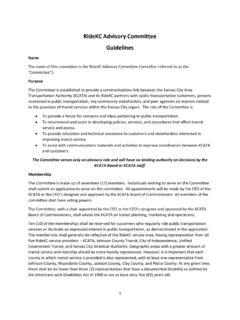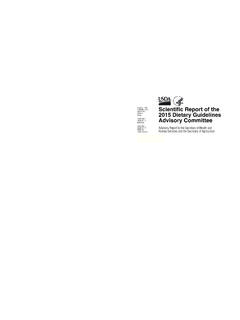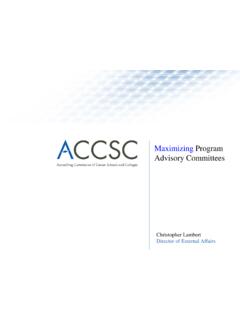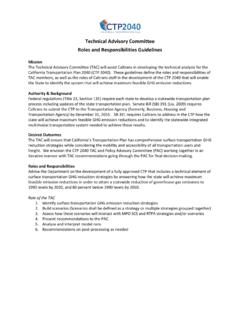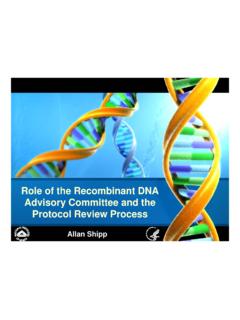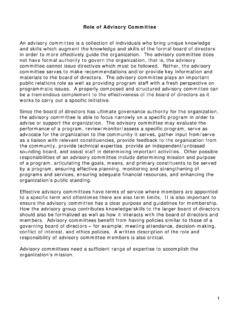Transcription of School advisory councils - florida-family.net
1 School advisory councils Frequently Asked Questions Bureau of School Improvement Contact: or Abstract A comprehensive list of common questions regarding the duties, responsibilities, and membership requirements of School advisory councils . 1 Bureau of School Improvement Last Updated: 10/5/2017 Table of Contents Section I: SAC Overview .. 2 Section II: Membership Composition .. 7 Section III: roles and Responsibilities of SAC Members .. 11 Section IV: Noticing and Conducting SAC Meetings .. 12 Section V: Additional Information .. Error! Bookmark not defined. 2 Bureau of School Improvement Last Updated: 10/5/2017 Section I: SAC Overview 1. What is a School advisory council ? The School advisory council (SAC) is a School -based group intended to represent the School , the community, and those persons closest to the students that shares responsibility for supporting the School s continuous improvement.
2 The district School board is responsible, by Florida law, for establishing an advisory council for each School in the district and developing procedures for the election and appointment of advisory council members. Each SAC must include in its name the words " School advisory council ." For further information, see Section (1)(a), 2. What is the role of the SAC? The SAC is responsible for final decision-making at the School relating to the annual implementation of a School improvement plan (SIP). The SAC assists in the annual preparation of both the SIP and the School 's annual budget, as well as the evaluation of the SIP. For further information, see (2), 3. Who serves on the SAC? A SAC should be composed of the principal and an appropriately balanced number of teachers, education support employees, students, parents, and other business and community citizens who are representative of the ethnic, racial, and economic community served by the School .
3 Certain members are elected by their peers, business and community members are appointed by the SAC, and the principal automatically serves. Only students in secondary schools serve on a SAC. It is also a requirement that the majority of the members of the SAC are not employed by the School district. For further information, see Section (1)(a), In alignment with Best Practices in Inclusive Education (BPIE), BSI encourages the inclusion of parents of children with disabilities on SACs, as well as teachers or support employees whose primary role involves working with students with disabilities, in an effort to achieve representation of an entire School community. 4. Is a charter School required to have a SAC? No. Section (16)(a), , exempts charter schools from most statutes in chapters 1000-1013, including s.
4 , establishment of School advisory councils . 3 Bureau of School Improvement Last Updated: 10/5/2017 5. Are virtual schools, alternative and ESE centers required to have a SIP and SAC? Yes. The FDOE offices of School improvement, virtual schools, and general council met in 2016 to discuss requirements for virtual schools, alternative and ESE centers to develop and maintain School improvement plans and School advisory councils . The department s Office of the General council subsequently determined that no law exists to exempt these programs from the statutory requirements identified in the annual collection of SIP/SAC Assurances. Florida Virtual School (FLVS) Full-Time K-8 and FLVS Full-Time 9-12, FLVS district franchises, and full-time district virtual instruction programs are required to have School improvement plans and subsequently School advisory councils .
5 Virtual instruction programs managed by an approved provider, as described in section , are only required to submit a SIP if the School has received a grade of D or F in the most recent grades release. As for alternative and ESE centers, they are considered non-charter public schools and as such, are required to adhere to the same rules as their traditional School counterparts. 6. Are Department of Juvenile Justice programs required to have SACs? Yes. Pursuant to Section (1)(a), , district School boards are required to establish a SAC and annually approve a SIP for each non-charter School in the district, including schools operating for the purpose of providing educational services to students in Department of Juvenile Justice (DJJ) programs. However, Section (1)(c), , allows districts the flexibility of establishing a single district School advisory council for the purpose of developing and monitoring a district School improvement plan that encompasses all DJJ programs within the district.
6 7. Do SAC meetings fall under the Sunshine Law? Yes. All meetings of any board or commission of any state agency or authority, or of any agency or authority of any county, municipal corporation, or political subdivision, except as otherwise provided in the Constitution, at which official acts are to be taken, are declared to be public meetings open to the public at all times. As such, all SAC meetings may be attended by any parent, student, community member, teacher or staff member. No resolution, rule, or formal action of a SAC shall be considered binding unless taken or made by voting members at meetings that have been made open to the public. The board or commission must provide reasonable notice of all such meetings and designate a 4 Bureau of School Improvement Last Updated: 10/5/2017 specified period of time for public comment during each meeting.
7 For further information, see Section (1), , Sunshine Manual, and Informal Opinion, February 17, 1995, Attorney General s Office. 8. May members of a SAC vote by secret ballot? No. Because SACs fall under the purview of the Florida Sunshine Laws, votes may not be taken by secret ballot as that is a violation of open government determined by the Attorney General s Office. Please see AGOs 72-326 and 71-32 for more information. However, the Sunshine Law Manual states that council members are not prohibited from using written ballots to cast a vote as long as they are made openly at a public meeting, the name of the person who voted and his or her selection are written on the ballot, and the ballots are maintained and made available for public inspection in accordance with the Public Records Act. 9. How much funding is allotted to each SAC?
8 Section (18)(d), , requires districts to provide schools with School improvement funds for the purpose of developing and implementing School improvement plans. In accordance with section (5)(c), , these funds shall include discretionary lottery funds as described below. In Specific Appropriation 9 of the annual General Appropriations Act, funds are provided for the Florida School Recognition program to be allocated as awards of up to $100 per student to qualified schools, pursuant to section , If there are funds remaining after the disbursement of recognition awards, the balance must be allocated to all districts based on their K-12 base funding. From these funds, districts must allocate up to $ per unweighted, full-time enrolled (FTE) student to be used at the discretion of the SAC for implementing the School improvement plan.
9 If funds are insufficient to provide $ per student, the available funds will be prorated. These discretionary lottery funds, reported under funding code 3344, are distributed by FDOE to each district, which then forwards allocations to each local School s SAC. The funds may be expended only on programs or projects selected by the SAC, and neither district staff or the principal can override the SACs recommendations. The funds may not be used for capital improvements or for any project or program that has a duration of more than one year; however, a SAC may independently determine to continue funding 5 Bureau of School Improvement Last Updated: 10/5/2017 a program or project formerly funded with these funds in a subsequent year. For further information, see Sections (18)(d), and (5)(c), 10. What other funds do SACs have authority to manage?
10 In addition to the School improvement funds described in Question 7 above, SACs also play a role in determining how to distribute Florida School Recognition funds, or A+ funds. In accordance with section , , schools that receive a School grade of A, improve by at least one letter grade, or improved more than one letter grade and sustain the improvement the following year qualify to receive School recognition funds. The funds may be used for nonrecurring bonuses to the faculty and staff, nonrecurring expenditures for educational equipment or materials to assist in maintaining and improving student performance, or temporary personnel for the School to assist in maintaining and improving student performance. This determination must be approved jointly by the SAC and School staff by February 1. If the groups are not able to reach an agreement by the deadline, the funds must be equally distributed to all classroom teachers currently teaching in the School .

